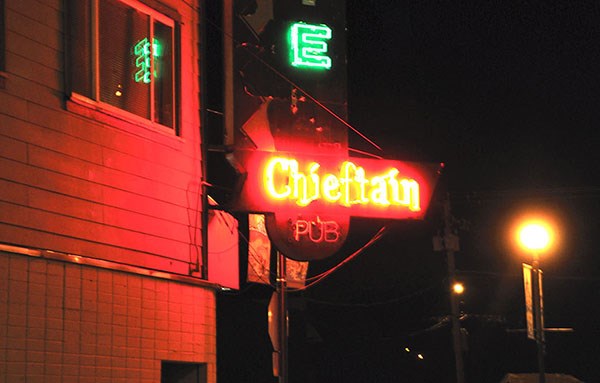Squamish had a bit of a rebel reputation during its early days.
While pioneers were ferrying up to the head of Howe Sound to work on the Pacific Great Eastern Railway, they were also leaving their mark on the local taverns.
“One of the things about Squamish is it is very well known for its beer parlours,” said Bianca Peters, the president of the Squamish Historical Society.
The most infamous watering holes were the Hotel Squamish, Newport Hotel and the iconic Chieftain Hotel. They’re all a part of British Columbia’s boozing “wet coast” history, a topic Dr. Robert Campbell examined in two books detailing the province’s regulation of liquor and public drinking.
On Friday, May 2, Campbell will give a tip of the mug to that part of Canada’s tale at the opening of the two-day 2014 Squamish Culture and Heritage Festival at Quest University.
“We’re really excited to have such highly notable speakers,” Peters said.
The Manitoba native taught Canadian and American history for nearly 30 years. In 2008, Campbell was appointed dean of arts and science at Capilano University. His lecture gives residents a fresh taste on the past, Peters said, noting there’s a lot that can be learned by examining the way in which society viewed and governed alcohol.
“It’s an interesting part of history,” Peters said.
Campbell will be joined at the event by Bill McLennan, a prominent researcher who focuses on the Northwest Coast First Nations. The curator emeritus for the UBC Museum of Anthropology brings an exhibit featuring photographs taken by a student who attended St. Michael’s Indian Residential School in Alert Bay. The pictures give viewers a glimpse into life at a residential school in the late 1930s. It’s a chance to see through the eyes of the students, Peters said.
The festival includes a multitude of renowned speakers, such as Simon Fraser University archaeologist Dr. Rudy Reimer and cultural researcher Naveen Girn, whose interests centre on Vancouver’s South Asian community.
The festival runs on May 2 and 3. On the first day, Squamish students in Grades 5, 6 and 7 will display history-themed poster boards they pieced together over a two-month period, while also being able to view detailed exhibits and participating in hands-on activities.
The following day, the event opens to the public. People can view the students’ work while taking in speakers’ presentations on a variety of topics pertinent to Squamish’s history.
“It’s important to impart knowledge to our local community,” Peters said.
For info visit www.squamishhistory.ca.



